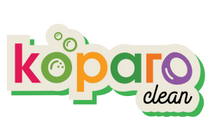
5 Potentially Harmful Chemicals Used at Home
Toxic Household Chemicals
There is a concoction of chemicals present in cleaning products that are harmful both to us and the planet, to help you reduce your exposure to these chemicals we’ve jotted down the nasty 5 to avoid!

Bleach
Many cleaning products, such as toilet cleansers, stains removers, and tile residue removers, include bleach, a highly dangerous chemical. Many people use these products without being conscious of their possibly negative effects for everyone who comes into contact with them.
Side Effects Of Cleaning With Bleach
Bleach can cause eye, throat and lung irritation and burning and, more seriously, chronic respiratory problems.
- Bleach should never be mixed with other chemicals
- Bleach is corrosive to to skin and lungs
- People with allergies or asthma may become ill even after inhaling just a little amount of bleach because of its strong odour
Is Using Bleach Safe Around Pets?
Exposure to bleach can be toxic to pets. Animals are naturally curious, therefore they often get into things they shouldn't. Your pet may lick the wet floor while you're using a bleach solution to clean the floor. They might even drink from the bucket.
Small amounts of diluted bleach are rarely harmful to pets, but they can be irritating. Concentrated bleach, especially in professional forms, is dangerous and can result in painful lesions on the skin, stomach, and oesophagus. It may take weeks or months for these to heal.
Phosphates
Any of a wide number of chemical compounds that contain the naturally occurring mineral phosphorus linked together with oxygen are referred to as phosphates.
Phosphates Harmful effects
Phosphates can cause severe harm to marine life particularly from laundry detergents loaded with phosphates. Excess phosphates can cause high levels of algae blooms that deplete oxygen and can impact marine life adversely

Several countries have banned the use of phosphates in detergents. According to a report by PTI, the Delhi government banned the sale, storage, transportation, and marketing of soaps and detergents not conforming to the latest BIS parameters to curb pollution in the Yamuna river. These standards include guidelines on use of phosphates.
Parabens
One of the most well-known ingredients to avoid is parabens. They are used for the longevity of water-containing lotions, cosmetics, and soaps clean and stop growth of bacteria.
Paraben Safety
Studies have shown that there are links between paraben exposure and a number of health issues:
In severe circumstances, parabens can lead to sterility, cancer, and reproductive problems. As a result, parabens and cosmetics that have the word "paraben" in their components should be avoided.
Effects of parabens
Studies have shown that parabens are harmful to your health because they may mimic the activity of certain hormones in the body and could lead to sterility, cancer, and reproductive problems.
How to Select Paraben-Free Products
Avoiding parabens doesn’t have to mean buying products with shorter shelf lives. Koparo chooses only to use paraben free cleaners which contain plant-based preservatives like coco betaine.
Ammonia
Ammonia is a common component in household products that are distributed commercially. It is primarily discovered in polishing products that are used to restore the shine to window panes, jewellery, sinks, and bathroom fixtures. Ammonia is a component of glass cleaners, oven cleaners, and stainless steel cleaners.
Potential Effects of Ammonia Exposure
- Can cause coughing, and burning sensation in the nose and the throat
- Can trigger asthma and allergies
- Irritates the eyes and lungs and can also cause burns or rashes on skin

Triclosan
A common broad-spectrum antibacterial, triclosan is used in many consumer products including dentifrices, liquid dishwashing detergents, hand soaps, and cosmetics. A harsh antibacterial agent called triclosan can stimulate the growth of bacteria that are resistant to antibiotics.
Triclosan Exposure
- Increases the Risk of Cancer
- Promotes the Growth of Drug-resistant Bacteria
- Affects Fetal Development & Growth
Choose Effective, Plant-Based Home care Products
Koparo develops safe and efficient cleaning formulas for your complete house in collaboration with pHDs, biochemists and cleaning experts. You don't have to spend all day looking for phthalate- or paraben-free household products.
Koparo ensures that they don’t put anything in their products that you wouldn’t let your kids touch. And so, they searched and found the most powerful plant-based ingredients that take the fight to dirt, grime and germs and packed them in good measure in their cleaners. They avoid using non biodegradable ingredients that are potentially harsh for you and certainly harmful for the planet. Koparo’s cleaners are between 95 to 99% biodegradable - go on and get them to fight against the dirt, guilt free!
Koparo’s products are manufactured in a state of the art facility with WHO approved Good Manufacturing Practices to deliver you consistent quality standards across our range.
Read more about toxic-free cleaning products: WHAT IS TOXIN-FREE CLEANING? … AND WHY IT IS IMPORTANT









